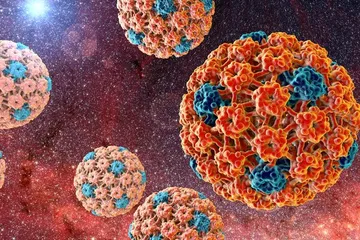4 major hazards of insufficient protein intake
Protein and the human body
In the human body, about 60% is water, and about 20% is protein. Protein has 20 kinds of amino acids. These amino acids are complex combinations to form muscles, skin, hair, nails, internal organs and immune bodies. Most organs of the body are formed through protein.
Most foods contain protein, especially in meat, fish, eggs, soy products and dairy products, where the protein content is particularly high.

Since animal proteins such as meat and dairy products always give people the impression of high calories and high fat, many people often avoid this type of food when losing weight. However, this can easily lead to a shortage of protein in the body and bring various adverse effects to the body.
Hazards of insufficient protein intake
1. Even if you exercise, it is difficult to burn fat
Insufficient protein can cause a decrease in the number of basic metabolism, which in turn causes a decrease in the amount of gluten meat. Once the amount of gluten meat decreases, the number of basic metabolism will inevitably decrease. If the amount of basal metabolism is reduced, even if you exercise, it will be difficult to burn fat, and the effect of weight loss will become very poor. In addition, hair loss, anemia, diarrhea and edema may also occur.
2. Protein deficiency is often accompanied by energy deficiency
When there is only protein deficiency, the main manifestations are edema, growth retardation, skin pigmentation, and brittle hair; when protein deficiency is accompanied by energy deficiency, the main manifestations are obvious weight loss, growth retardation, anemia, dry skin, and muscle atrophy.
3. Nutritional edema
Protein malnutrition The body stores very little protein. When the nutrition is sufficient, it is only about 1% of the total protein of the body. This protein, called mobile protein, is mainly stored in the liver, intestinal mucosa and pancreas. After loss, it does not change organ function. When dietary protein is deficient, tissue proteins decompose quickly and synthesize slowly, leading to a series of biochemical, pathological changes and clinical manifestations. Among them, the intestinal mucosa and digestive glands are involved early, and clinical manifestations are malabsorption and diarrhea; the liver cannot maintain normal structure and function, resulting in fat infiltration; plasma protein synthesis is disturbed; enzyme activity is reduced, mainly xanthine oxidase and glutamate dehydrogenase is reduced; Muscle atrophy gradually occurs due to insufficient muscle protein synthesis; resistance to infectious diseases is reduced due to reduced antibody synthesis; it is difficult to overcome stress due to decreased adrenal cortex function; Collagen synthesis can also occur, making wounds difficult to heal; slow bone growth and mental development disorders can be seen in childhood. Long-term insufficient protein intake can gradually form nutritional edema, which can lead to death in severe cases.
4. Hypoplasia
Evaluation of nutritional status Long-term insufficient protein intake will affect the synthesis of protein in body tissues. In children and adolescents, growth and development are delayed, height and weight are lower than normal children, and even affect the normal development of intelligence. Adults may experience fatigue, weakness, weight loss, plasma albumin decline, muscle atrophy, anemia, and in severe cases, nutritional edema may occur. In addition, it can also slow wound healing and low immune function.
Severe protein deficiency, which is more common in children in developing countries. Protein deficiency often occurs simultaneously with energy deficiency and is called protein. Energy malnutrition is a syndrome with different clinical symptoms in several groups. Severe PEM can lead to the death of children. Mild and chronic PEM are often ignored, but they have a significant impact on children's growth and development.
How to consume protein
In order to lose weight while ensuring good protein absorption, what kind of food should we choose is better?
Animal food contains high protein, but animal protein has relatively high calories and is not conducive to weight loss. In contrast, vegetable proteins such as soybeans have much lower calories. So, when losing weight, try to choose high-protein foods with low calories. Despite this, Xiaobian still wants to remind you that the composition of plant protein in our bodies is different from the composition of amino acids. Even if a certain amount of plant protein is absorbed, it is difficult to have an effect on the formation of muscle.
Customized personalized weight loss plan>>
Check food calories>>
Go to the 39 Weight Loss Forum to lose weight with everyone>>(Internship Editor: He Zhiyan Responsible Editor: Song Xue)
39Health website www.39.net special article, please do not reproduce without written authorization.